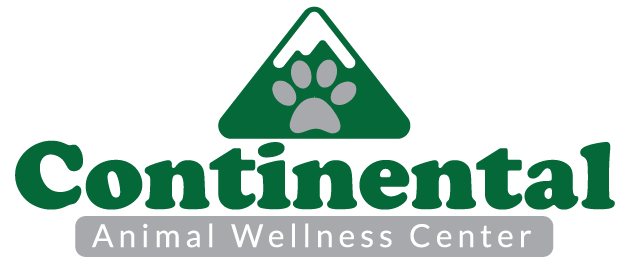Pet Dental Care & Treatment in Flagstaff
Get our anesthesia dental cleaning package!
Give the furry member of your family a clean, healthy smile.
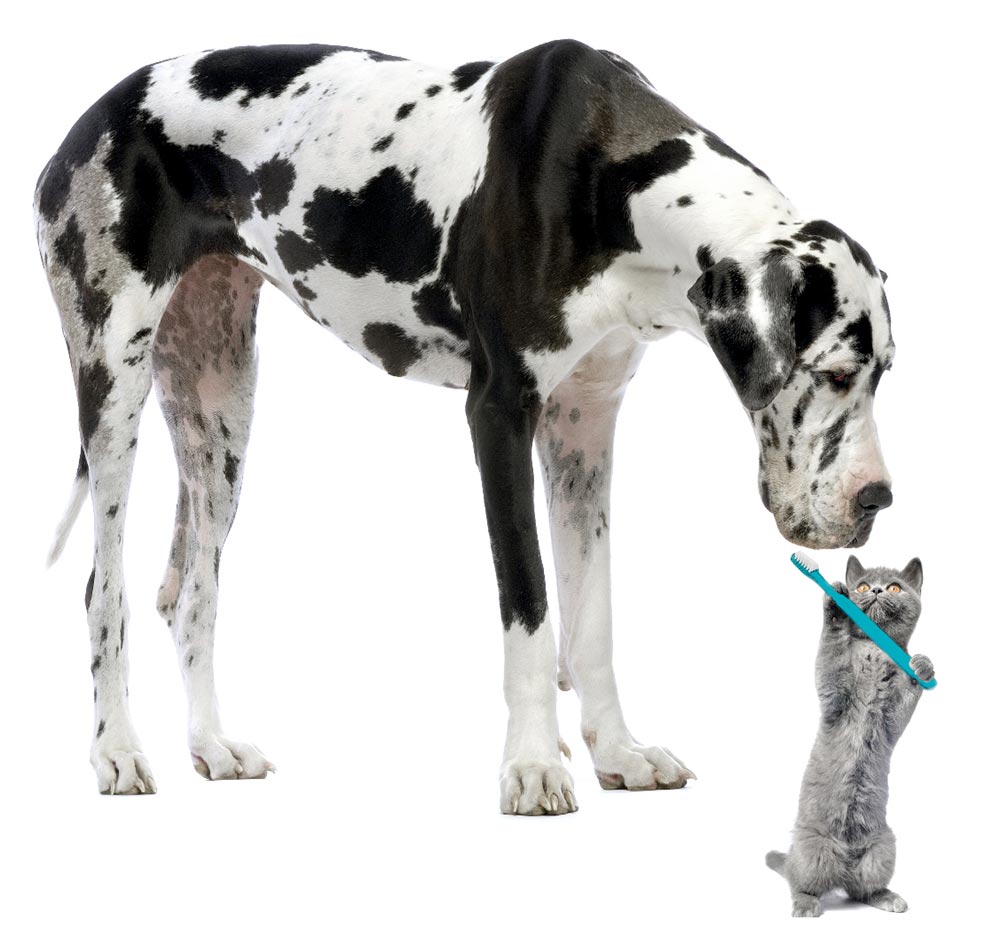
Our Dental Package
ONLY $649
- Dental scale and polish with anesthesia
- Pre-anesthetic bloodwork
- Digital x-rays
- IV catheter
- IV fluids
- Complete oral exam and dental charting
- Fluoride treatment
- Complementary toenail trim
We are proud to offer a special dental package to ensure your pet’s dental health. Our dental care package includes a range of comprehensive services to give your dog and/or cat the best possible dental care. Our dental care package is perfect for your dog or cats annual dental care check-up.
What dentistry at Continental is like
Available Dental Services
It is estimated that dogs and cats will generally develop gum disease by the age of three years. Left untreated, these dental problems can lead to toxic bacteria entering the bloodstream. Despite the importance, simple pet dental care is often overlooked by owners.

Small Animal Dental Care
The first step to maintaining your pet’s dental hygiene is to understand the risks and symptoms of oral issues, and what you can do to prevent future problems.
Dental Care for Pets in Northern Arizona
Proper dental care is essential for the overall health and well-being of our beloved pets. Just like humans, pets require regular dental check-ups and preventative care to maintain healthy teeth and gums. At Continental Animal Wellness Center, we understand the importance of dental hygiene for pets and offer comprehensive dental care services for a variety of animals. Whether you have a dog or cat, our team of experienced veterinarians is dedicated to providing top-notch dental care tailored to your pet’s specific needs.
Oftentimes when we think about dental disease, we think about the development of cavities. However, cavities are not as common in dogs and cats, but there are many other reasons why an animal can develop problems.
Some of the more common reasons include:
- Tartar build-up
- Broken teeth and roots
- Periodontal disease
- Infected teeth or abscesses’
- Oral cysts or tumors
- Malocclusion, or misalignment of the teeth and bite
- Excessive chewing on hard objects
- Broken (fractured) jaw
- Palate defects (like a cleft palate
Providing Dental Care for Dogs & Cats
We believe that all pets deserve proper dental care regardless of their species which is why we are trained to handle their various dental needs. We offer specialized dental care services for dogs and cats, ensuring that each pet receives the attention and treatment they require.
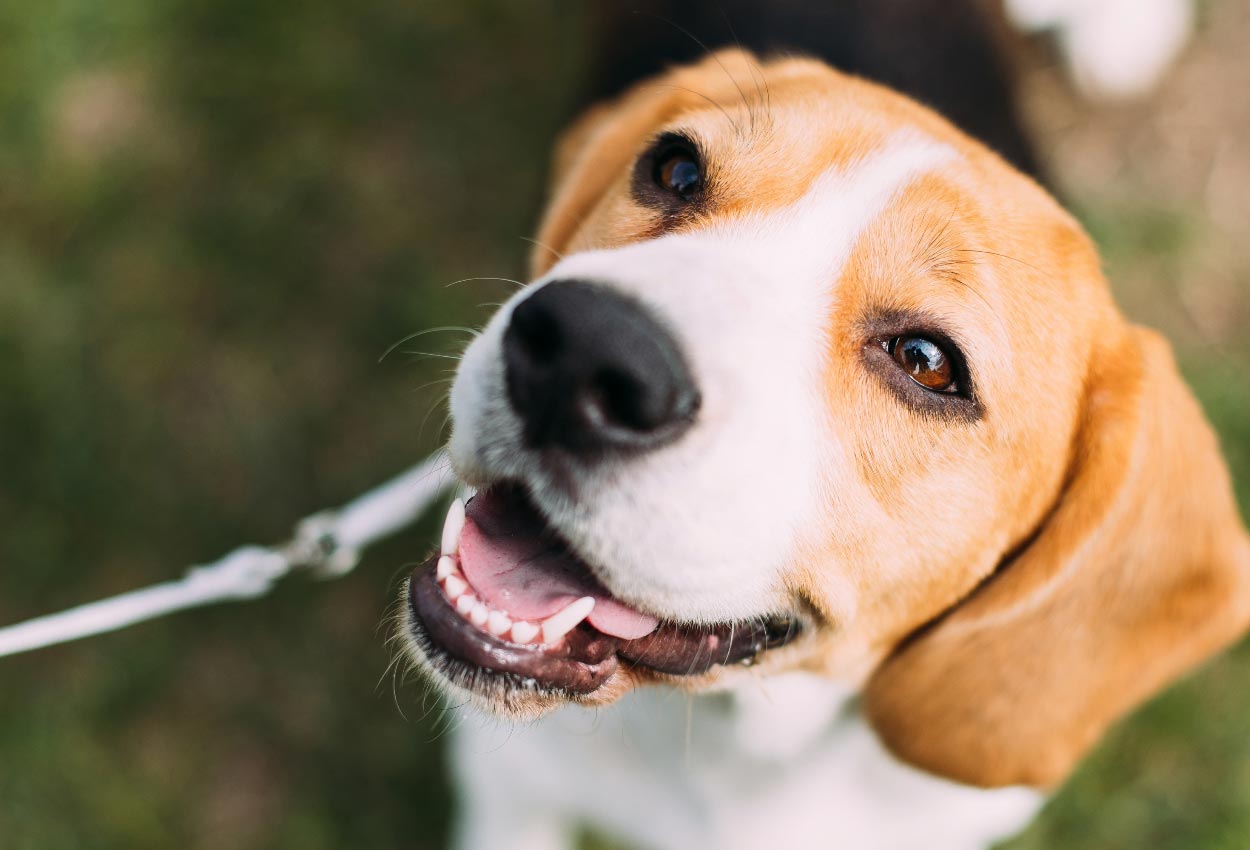
Dog Dental Care
From big dogs to little dogs and from old dogs to young dogs, every canine companion deserves optimal dental health.
Our team of veterinarians is well-versed in dog dental care, providing comprehensive dental examinations, cleanings, and necessary treatments.
We understand that dog dental hygiene varies based on factors such as breed, age, and overall health, and we offer personalized recommendations to keep your furry friend’s teeth and gums in excellent condition.
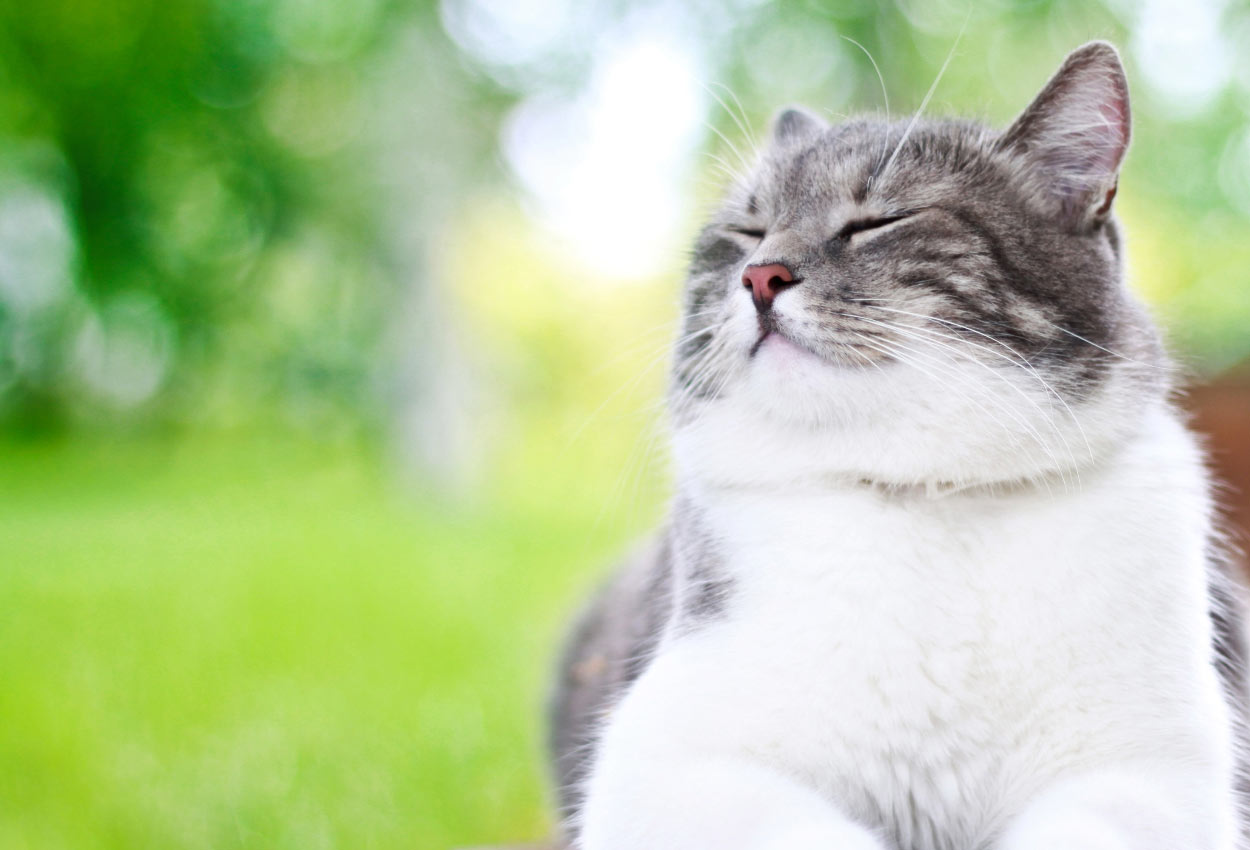
Cat Dental Care
Dental disease is highly prevalent in cats, affecting anywhere between 50 to 90 percent of cats over four years old.
That’s why your cat needs regular dental care to prevent oral health issues. Our team is experienced in providing cat dental care services, including dental exams, cleanings, and specialized treatments.
We understand the unique dental needs of feline friends and offer tailored solutions to maintain their dental health.
Your Pet’s Dental Health Starts at Home
While professional dental care is crucial, maintaining your pet’s dental health at home is equally important. Regular brushing of your pet’s teeth and providing appropriate dental chews and toys can help reduce plaque buildup and maintain oral hygiene. We are happy to provide guidance on home dental care techniques and recommend suitable dental products for your pet’s specific needs.
Common Issues With Your Pet’s Teeth
Some of the above causes are more common than others, but one of the most common reasons why we see dental problems in dogs and cats is due to periodontal disease. Periodontal disease starts when plaque begins to harden on the tooth and forms what is known as tartar. When this happens above the gum line, it can easily be seen and removed. When tartar sets in below the gum line, it begins to create issues by setting the stage for infection. This causes a weakening of the ligament surrounding and connecting each tooth to the jaw, called the periodontal ligament. When this ligament and other surrounding structures become affected, we call it a periodontal disease. Advanced periodontal disease causes damage to the jawbone and the tissues that connect the tooth to the jawbone. We often see that by the time your pet is three years old, it is likely they will show some signs of periodontitis, which is inflammation of the periodontal ligament.
Early detection of these issues is critical because advanced gum disease can cause more severe health problems in your pet, as well as a significant amount of pain. Some of the more severe health issues that we can see include liver and kidney disease, as well as changes in the heart muscle. These issues arise when the bacteria present in severely affected mouths enter into the bloodstream to then travel to these important organs.
Stop Dental Issues Early
Your pet’s teeth should be checked at least once a year by a veterinarian for early signs of an issue. In addition, you should be regularly inspecting your cat or dog’s teeth to ensure they have good oral health. There are a variety of tell-tale signs that your pet is suffering. You should have your animal checked out if you notice any of the following:
- Inactivity, lethargy, or depression
- Bad breath
- Discolored teeth or large tartar build-up
- Red, swollen, or bleeding gums
- Loose or broken teeth
- Excessive salivation or oral discharge
- Dropping food while eating
- Poor grooming
- Loss of appetite and weight loss
- Facial swelling in and around the mouth
- Pain and/or abnormal chewing
Some pets may also become irritable as dental problems progress. Just like humans, when in pain, their behavior may change. Any shift from normal behavior or routines should result in an immediate visit to your vet. Always be careful when evaluating your pet’s mouth, because an animal in pain may be quick to bite.
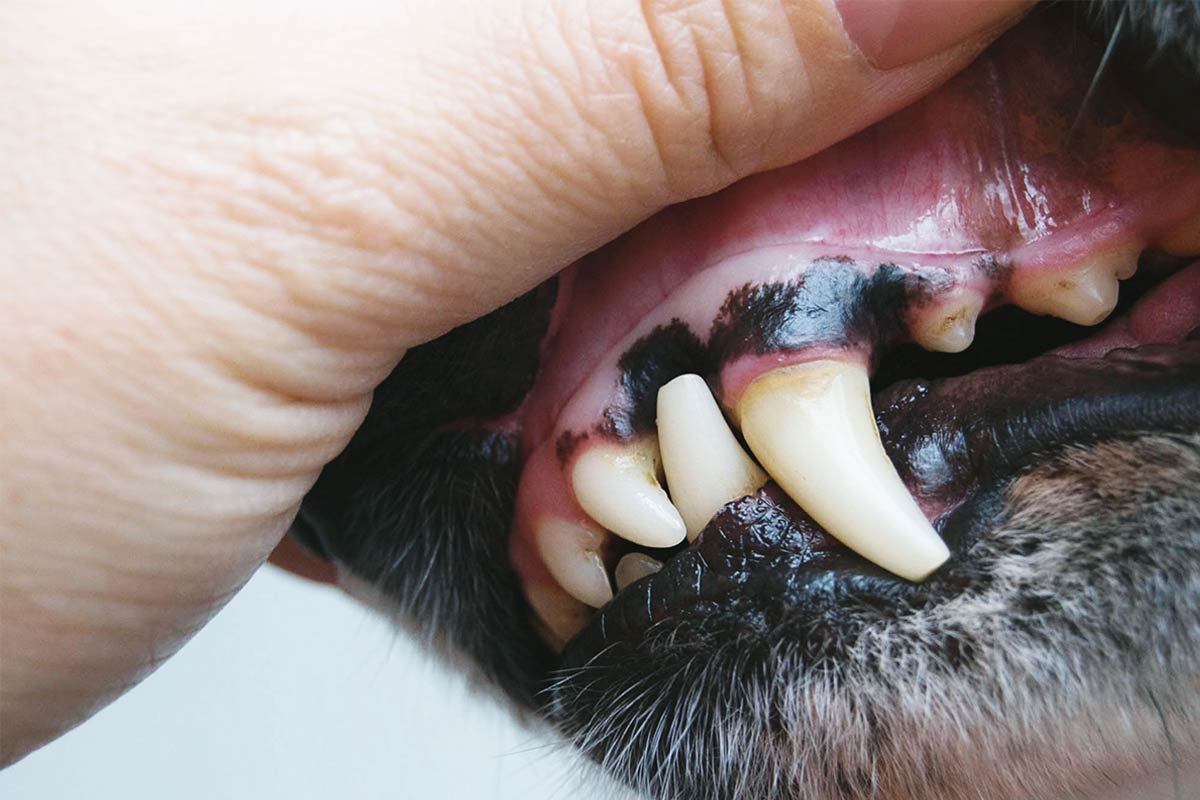
6 Warning Signs of Tooth & Gum Issues
If your pet experiences any of the following, visit your local veterinarian.
Bad Pet Breath
Believe it or not, healthy pets do not have bad breath. As a result, bad breath is one of the first indications of dental disease in your pet. A shiny film of bacteria will coat the teeth which may cause the teeth to appear discolored or stained. This is the first stage of an issue and will lead to plaque accumulation if not treated.
Tartar Buildup
Once plaque has sufficiently accumulated, it begins to harden into a yellowish-brown crust. This hard, calcified deposit forms on the tooth, both above and below the gumline. Also referred to as “tartar,” once formed, it can no longer be brushed away and must be removed by a professional. The longer it sits, the more it will push the tooth away from the gumline.
Red and Swollen Gums
When tartar goes untreated, it will start to irritate your pet’s gums. You may have heard the term “gingivitis” which refers to inflammation of the gum tissue. When treated early on, red and swollen gums can be reversed.
Inflamed gums enable bacteria to enter the bloodstream which can cause issues with other organs, as discussed previously. Furthermore, if the gums actually separate from the tooth, the damage is permanent.
Pain or Bleeding When Your Pet Eats
It can be difficult to tell when your animal is in pain because they do not voice their discomfort. Pain or tenderness along the mouth is indicative your pet is having oral issues. Some common problems include:
- Infected or swollen gums
- Broken teeth
- Build-up of tartar
When unaddressed, lesions may also occur which are sore and can openly bleed. Being able to identify when your pet is in pain is an important part of being a responsible owner.
Decreased Appetite
Reduced appetite or refusal to eat is an immediate sign something may be wrong with your pet’s health. When your pet is suffering from tooth pain, it’s harder to chew and, you may notice, they are eating considerably less than normal.
Your pet may also whine, wince, or spit out food when eating. No matter the case, when your pet has issues consuming meals, it is time to schedule an examination with your veterinarian.
Loose or Missing Teeth
Unless your pet experiences trauma, loose or missing teeth are generally caused by an untreated tartar build-up that leads to advanced periodontitis. Tartar gets under the gums and begins to force the wall of the tissue away from the bone. Gum separation cannot be reversed. The damage is permanent and generally results in tooth loss.
Helpful Pet Dental Articles & Resources
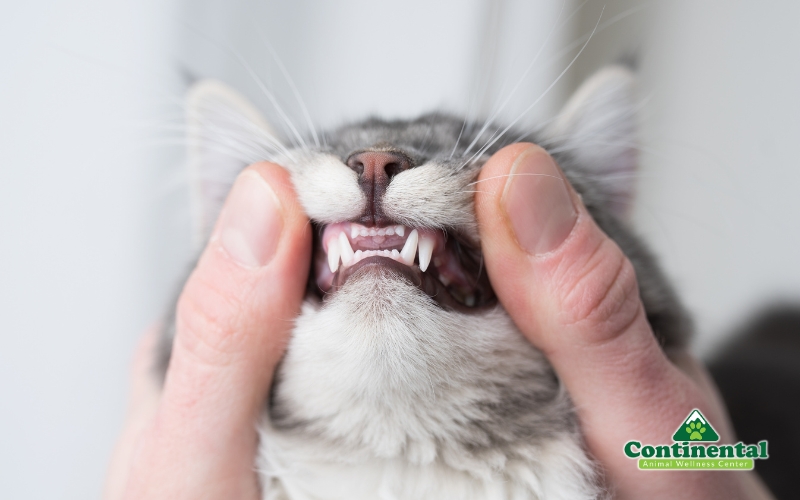
5 Signs Your Pet’s Teeth Are In Trouble, National Pet Dental Health Month
February is National Pet Dental Health Month! Bad breath, drooling, avoiding food? These could be signs of serious dental disease. Spot the signs and keep your pet’s teeth healthy now!
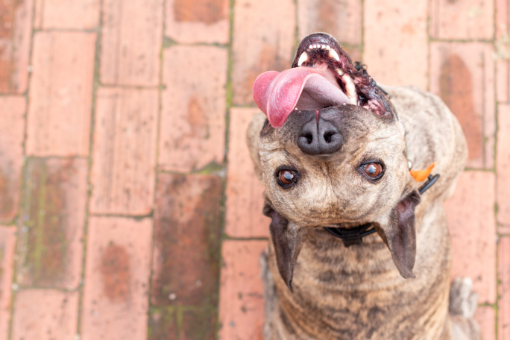
Myths and Facts of Dental Hygiene for Pets
Making sure your pet’s teeth are sparkling and clean is crucial. But, it can be overwhelming to navigate all the information out there about proper dental hygiene for pets. Here’s everything you need to know about the myths and realities of dental hygiene for pets.
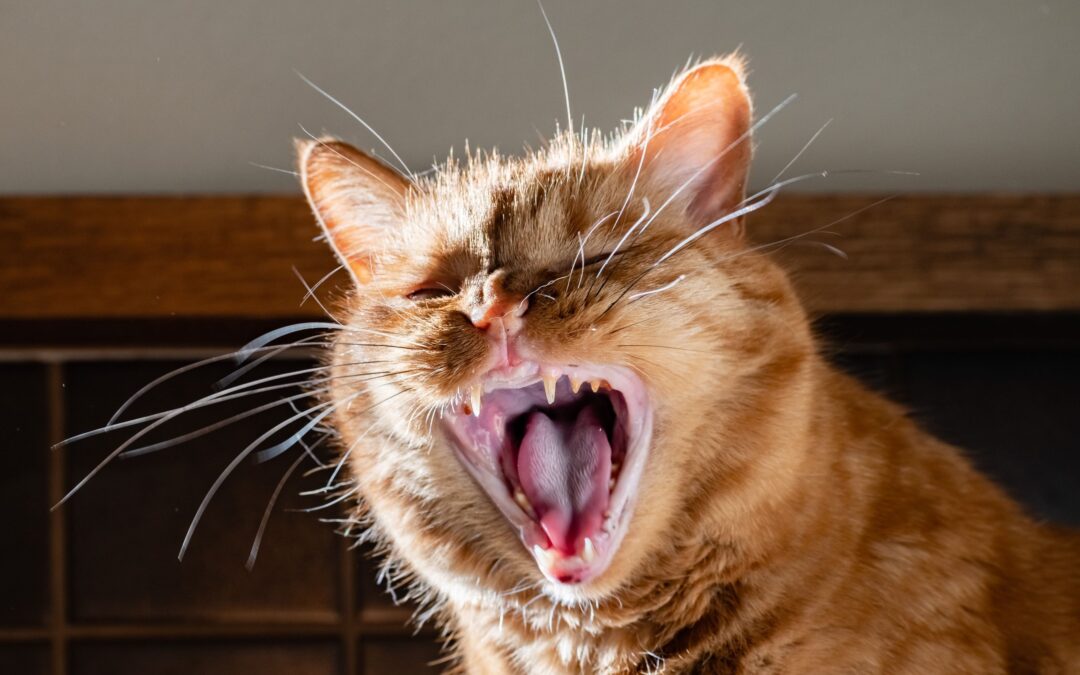
How to Prevent the 3 Most Common Dental Diseases in Cats
Make sure your cat isn’t at risk of dental disease by following these tips.
Pet Dental Care Tips
The bottom line is that disease cannot really form on teeth that are kept clean. Prevention is the best way to combat any type of oral issue. Home dental care for pets includes the frequent removal of dental plaque and tartar that forms on an animal’s teeth.
Regular brushing is one of the most effective actions a pet owner can take against dental disease.
Daily brushing is recommended and works best, but it may not always be possible. Several times a week can be effective. You’ll find that dogs are generally more receptive and easier than cats. This is where proper training is important. Brushing at home does not decrease the need for annual dental cleanings and exams from a veterinarian.
If your pet is difficult to brush their teeth, there are certain foods and treats that can also be helpful (both dog and cat dental care products are available). The Veterinary Oral Health Council (VOHC) offers an extensive list of acceptable treats for supplemental dental care.
Tooth pain can be debilitating for a pet. If your pet exhibits any signs of discomfort during DIY care, it is time to contact your veterinarian.
Remember to:
- Feed them quality food
- Perform oral examinations on a regular basis
- Avoid hard bones that damage teeth
- Encourage chew toys to stimulate gum health
Resources:
Learn more about periodontal disease
Learn more about pet dental care
Dental Care at Continental Animal Wellness Center
Dental disease is one of the most common health problems that we see at Continental Animal Wellness Center. When left untreated, oral issues can cause problems in an animal’s entire body.
At Continental Animal Wellness Center, we integrate traditional and behavioral health medicine with stellar customer service to create a comfortable and caring atmosphere for both you and your pet.
When you bring in your beloved family member, our staff offers comprehensive oral care with a unique treatment plan for each animal. From there, we incorporate routine oral hygiene and cleanings into your pet’s wellness plan to ensure a happy and healthy mouth.
We here at Continental Animal Wellness Center fully understand the important role animals play in your life. Our facility offers years of professional experience in animal dental care with a compassionate and loving touch. Contact us for further questions and to set up an appointment!
